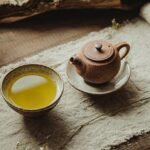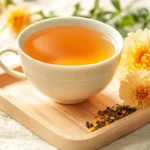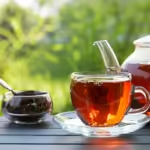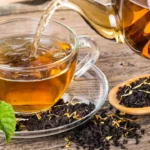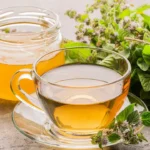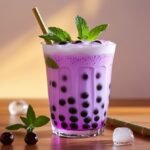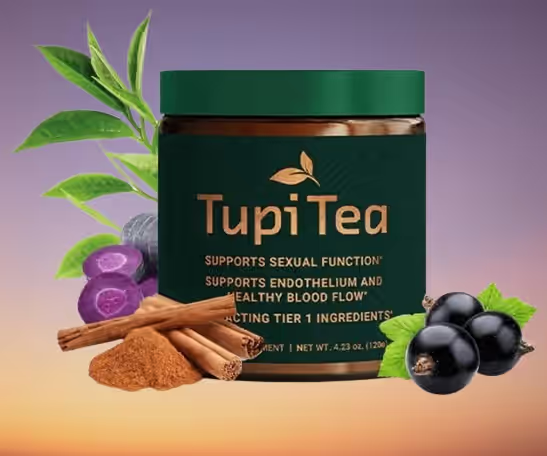Table of Contents
In recent years, hibiscus tea has surged in popularity, becoming a beloved choice among herbal tea enthusiasts and health-conscious individuals alike. This vibrant, ruby-red beverage is not only visually appealing but also packed with numerous health benefits that make it a standout among caffeine-free drinks. Many wonder, does hibiscus tea have caffeine? The answer is a resounding no, which only adds to its appeal for those looking to avoid stimulants. One of the most compelling hibiscus tea benefits is its rich antioxidant content, which can help support overall wellness and boost immune function.
As more people seek out refreshing beverages that promote a balanced lifestyle, hibiscus tea’s naturally tart and tangy flavor offers an invigorating alternative to traditional caffeinated options. Its ability to be enjoyed both hot and chilled makes it versatile for any season, further cementing its status as a staple in the world of herbal tea popularity. Whether you’re looking to unwind after a long day or simply explore new tastes, incorporating hibiscus tea into your routine can be both a delightful and beneficial choice.
Does Hibiscus Tea Have Caffeine?
The short answer is no, hibiscus tea does not contain caffeine. As an herbal tea made from hibiscus sabdariffa—and not from the leaves of the Camellia sinensis plant used for traditional teas—hibiscus tea is naturally caffeine-free. This makes it a perfect choice for those who are sensitive to caffeine or looking to reduce their intake. Unlike caffeinated beverages, hibiscus tea offers a soothing experience without the jittery side effects, allowing you to enjoy it any time of day.
For convenience, many brands now offer hibiscus tea in pre-packaged bags, making it easy to brew a delicious cup whether you’re at home or on the go.
👉 Unlock the premium Hibiscus Tea experience today 👈
Comparing Hibiscus Tea with Other Popular Herbal Teas
Herbal Teas Comparison
When it comes to choosing the perfect herbal tea, understanding the unique qualities of each option can guide you to a more satisfying choice. Popular herbal teas like chamomile, peppermint, and hibiscus each offer their own blend of flavor and wellness benefits. Whether you’re seeking relaxation, digestive support, or a boost of antioxidants, comparing these teas can help you find the one that best suits your needs.
Caffeine Levels in Teas
An essential consideration for many tea drinkers is the caffeine content. Unlike traditional teas derived from the Camellia sinensis plant, most herbal teas—including hibiscus, chamomile, and peppermint—are naturally caffeine-free. This makes them an ideal choice for those looking to reduce caffeine intake without sacrificing the comforting ritual of a warm cup.
Chamomile vs. Hibiscus vs. Peppermint Tea
Now, let’s compare the flavors and benefits of these three herbal teas:
- Chamomile Tea: Renowned for its calming effects and subtle floral notes, chamomile is often the go-to choice for bedtime relaxation and easing anxiety.
- Peppermint Tea: With its refreshing minty taste, peppermint tea invigorates your senses while also aiding digestion.
- Hibiscus Tea: Standing out with its tart, cranberry-like flavor, hibiscus tea not only refreshes and invigorates but is also packed with antioxidants that support cardiovascular health by helping to maintain healthy blood pressure levels.
In this herbal teas comparison journey, whether you’re deciding between chamomile vs. hibiscus vs. peppermint, your choice will ultimately depend on what you’re seeking from your cup of brew—be it relaxation before bed, a digestive aid, or an antioxidant-rich refreshment. For those leaning toward vibrant health benefits paired with a unique tangy taste experience, hibiscus tea might just be your new favorite go-to option.
Why Choose Hibiscus Tea Over Other Beverages?
Compare Caffeinated vs Non-Caffeinated Drinks
When it comes to choosing a beverage that aligns with both health and relaxation, hibiscus tea stands out as a superior option. Unlike caffeinated drinks such as coffee and black tea, which can lead to jitters and disrupted sleep patterns, hibiscus tea offers a soothing experience without the caffeine-induced side effects. This vibrant herbal alternative provides a gentle lift without overstimulating your system, making it an ideal choice for those looking to unwind.
Soothing Teas Without Caffeine
Hibiscus tea is not only caffeine-free but also packed with antioxidants that support overall wellness. While caffeinated beverages might give you a temporary energy boost, they often come with the inevitable crash that leaves you feeling more fatigued than before. In contrast, sipping on hibiscus tea throughout the day can help maintain steady energy levels without the rollercoaster of highs and lows.
Herbal Alternatives to Coffee and Black Tea
Moreover, for those seeking herbal alternatives to their daily coffee or black tea habit, hibiscus offers a delightful tangy flavor profile that refreshes the palate. Its natural properties promote relaxation and can even aid in managing blood pressure levels—a benefit not typically associated with caffeinated counterparts.
Choosing hibiscus tea over other beverages ensures you’re indulging in something that’s not only delicious but also beneficial for your body. So why settle for drinks that leave you wired when you can enjoy a calming cup of hibiscus tea? Make the switch today and experience how this soothing elixir enhances your daily routine while supporting your health goals.
Benefits of Drinking Caffeine-Free Hibiscus Tea
Choosing hibiscus tea over caffeinated alternatives brings several notable benefits:
- Better Sleep Quality: Being naturally caffeine free means that hibiscus tea won’t interfere with your sleep, making it ideal for an evening sip.
- Gentle on the Stomach: Without the acidity sometimes caused by caffeine, hibiscus tea is a soothing option for your digestive system.
- Antioxidant Rich: Its antioxidants—comparable to those found in hibiscus extract supplements—help protect your body from free radical damage.
- Supports Heart and Liver Health: Research has linked hibiscus tea to improved cardiovascular health and even better liver function.
- May Aid in Cancer Prevention: Some preliminary studies suggest that the antioxidants in hibiscus tea could help reduce the risk of cancer, although more research is needed in this area.
👉 Discover the best Hibiscus Tea for a vibrant lifestyle 👈
Hibiscus Tea and Pregnancy: Is It Safe?

While hibiscus tea is caffeine-free, pregnant women may need to exercise caution when drinking it. Many herbal teas are safe during pregnancy, but hibiscus tea falls into a category that requires careful consideration.
Potential Concerns During Pregnancy
Some studies suggest that consuming large amounts of hibiscus tea during pregnancy might have negative effects, such as:
- Hormonal Effects: Hibiscus tea contains phytoestrogens, which may mimic the hormone estrogen. During pregnancy, any disruption to hormone levels can be a concern.
- Possible Uterine Stimulation: In some cases, hibiscus tea may lead to uterine contractions. While the risk is not fully established, some healthcare providers advise against drinking hibiscus tea, especially during the first trimester.
- Lowering Blood Pressure: Hibiscus tea is known for its ability to lower blood pressure. While this is usually a benefit, pregnant women who already experience low blood pressure should avoid it.
How Much Hibiscus Tea is Safe During Pregnancy?
If you enjoy hibiscus tea and are pregnant, it’s best to consult your healthcare provider before continuing to drink it. In general, small amounts of hibiscus tea are considered safe for most people, but every pregnancy is different. Always follow your doctor’s advice.
Alternatives to Hibiscus Tea During Pregnancy
If you’re looking for a caffeine-free, pregnancy-safe tea, consider trying options such as:
- Rooibos Tea: A rich, caffeine-free tea that offers antioxidants and a smooth flavor.
- Chamomile Tea: Known for its calming properties, chamomile can help with relaxation and sleep.
- Peppermint Tea: A refreshing option that can also aid in digestion.
How to Make Hibiscus Tea from Dried Flowers: A Quick Add Recipe
Hibiscus tea is not only delicious but also incredibly easy to make at home. Using dried hibiscus flowers, you can brew a flavorful and healthy tea in just a few simple steps.
Ingredients:
- 1 tablespoon (approximately 3 grams) of dried hibiscus flowers
- 2 cups of water
- Honey, sugar, or sweetener (optional)
- Lemon (optional)
Step-by-Step Guide:
- Boil the Water: Start by bringing 2 cups of water to a boil.
- Add the Hibiscus Flowers: Once the water reaches a boil, remove it from heat and add 1 tablespoon of dried hibiscus flowers to the water.
- Steep the Tea: Let the flowers steep in the hot water for about 5-10 minutes, depending on how strong you like your tea. The longer it steeps, the more intense the flavor will become.
- Strain the Tea: After steeping, use a strainer to remove the flowers, leaving you with a deep red, tangy tea.
- Sweeten (Optional): If you prefer a sweeter tea, add honey, sugar, or any sweetener of your choice. You can also squeeze in a bit of lemon juice for added tartness.
- Serve Hot or Iced: Hibiscus tea can be enjoyed hot, or you can pour it over ice for a refreshing cold beverage. If serving iced, consider doubling the amount of dried flowers to maintain the flavor after adding ice.

Customizing Your Hibiscus Tea
Hibiscus tea is highly versatile, and there are many ways to enhance its flavor:
- Spice It Up: Add a cinnamon stick or a few cloves during the steeping process for a warming, spiced version of hibiscus tea.
- Fruit-Infused Hibiscus Tea: Steep the tea with slices of fruit like orange or pineapple for a fruity twist.
- Hibiscus Lemonade: Mix your brewed hibiscus tea with lemonade for a refreshing summer drink.
👉 Sip on top-quality Hibiscus Tea and elevate your day 👈
Health Benefits of Hibiscus Tea
Now that you know how to make hibiscus tea, let’s explore some of the key health benefits associated with drinking it regularly:
- Rich in Antioxidants: Hibiscus tea is loaded with antioxidants, which help protect your body from damage caused by free radicals.
- Supports Heart Health: Drinking hibiscus tea has been linked to improved heart health by helping to lower blood pressure and reduce cholesterol levels.
- Boosts Immune Function: Packed with Vitamin C, hibiscus tea helps support a healthy immune system, making it a great choice during cold and flu season.
- Aids in Weight Loss: Some studies suggest that hibiscus tea can help with weight management by improving metabolism and reducing fat accumulation.
- Improves Digestion: Hibiscus tea can act as a natural diuretic, helping to promote healthy digestion and reduce bloating.
Conclusion: Embrace a Healthier Lifestyle with Caffeine Free Hibiscus Tea Today!
So, does hibiscus tea have caffeine? Absolutely not! Whether you’re brewing a cup from dried hibiscus sabdariffa or opting for the convenience of tea bags, hibiscus tea is a delicious and healthful beverage that can complement your lifestyle. It’s a fantastic option for those looking to improve sleep quality, support heart and liver health, and possibly even lower the risk of conditions like cancer.
Across the republic of wellness enthusiasts, hibiscus tea is celebrated for its refreshing taste and robust health benefits. If you’re ready to make a positive change in your diet, consider giving hibiscus tea a try—because every sip really does count.
Enjoy your journey to better health, one flavorful cup at a time!


